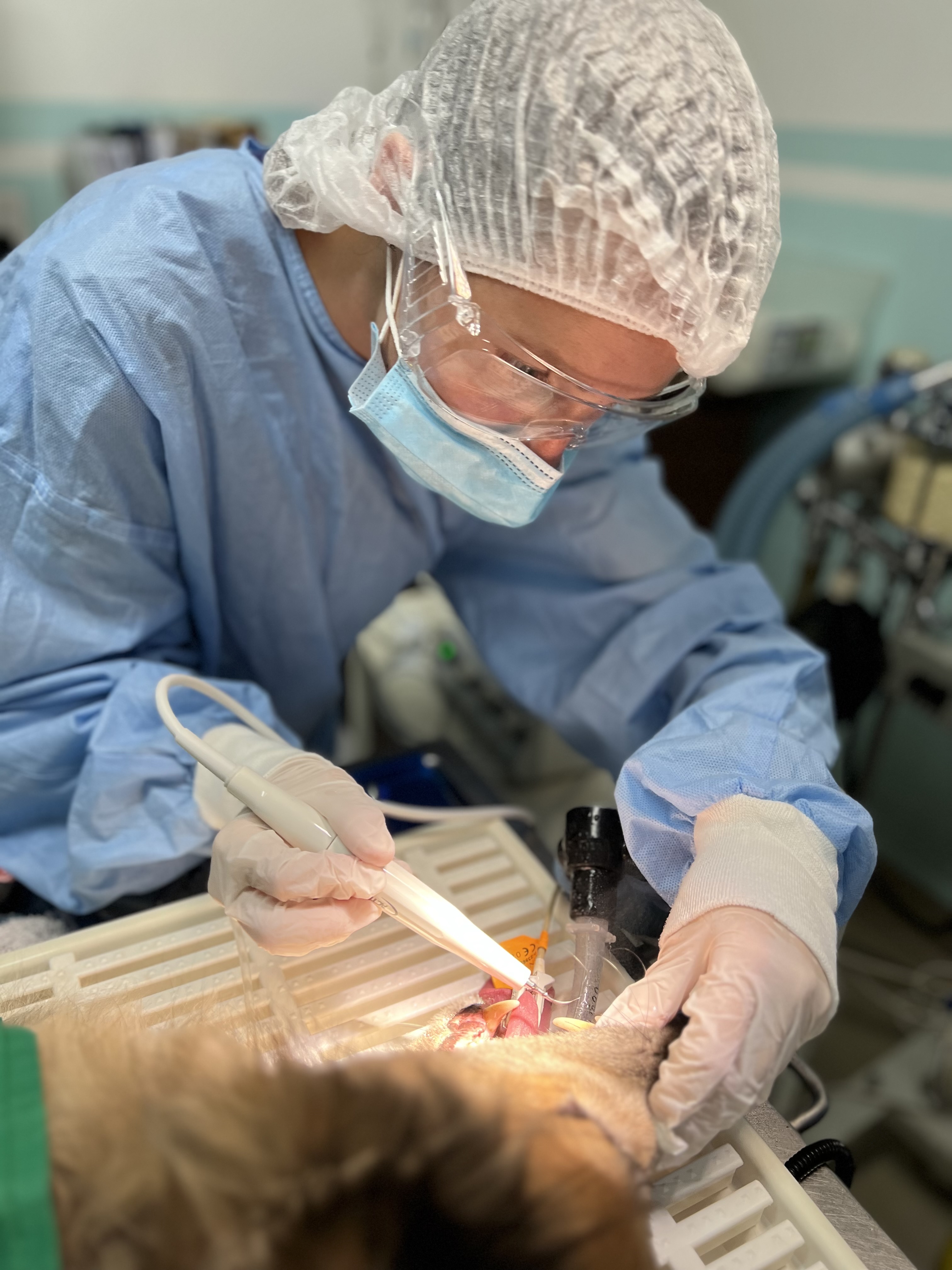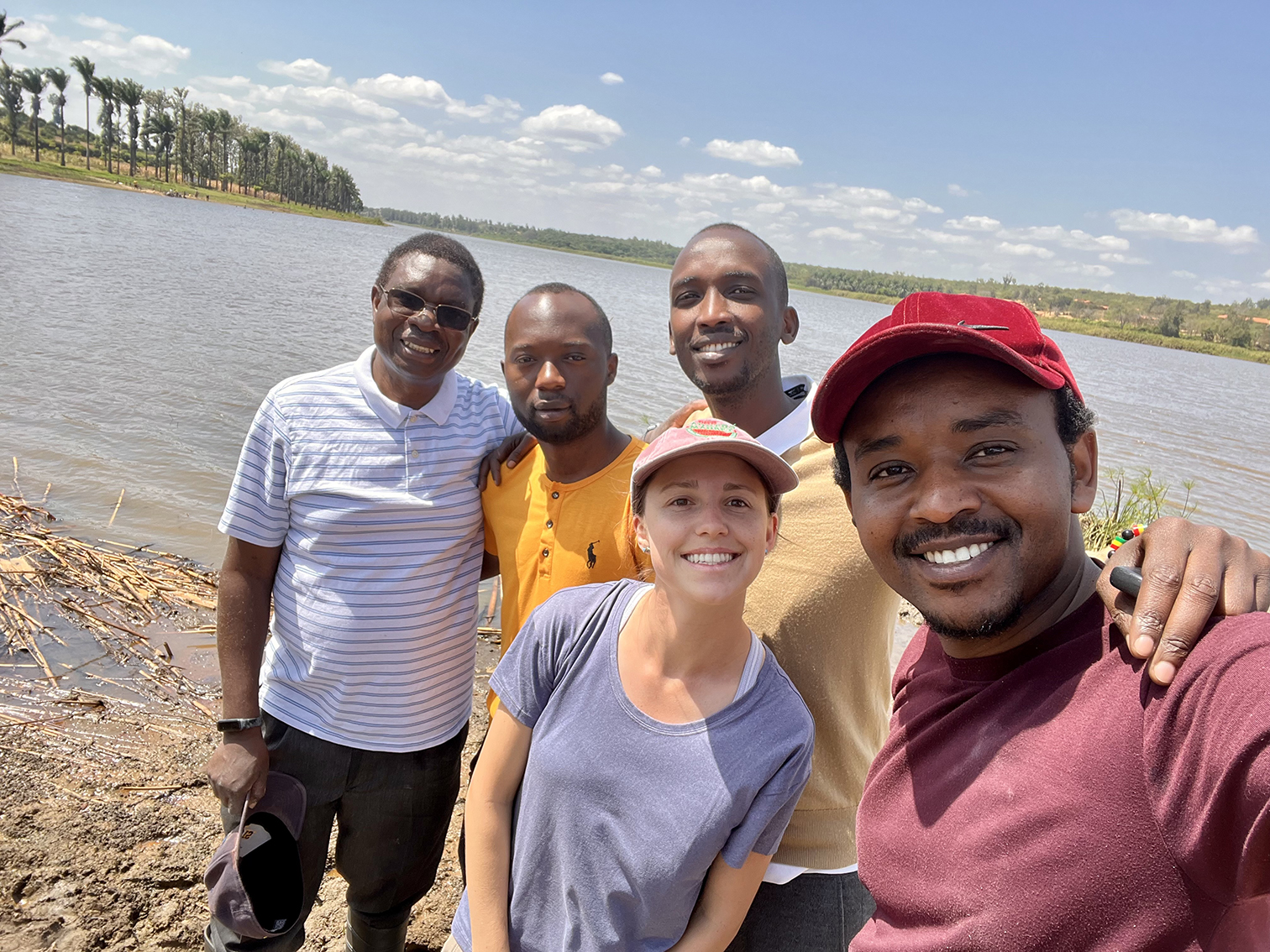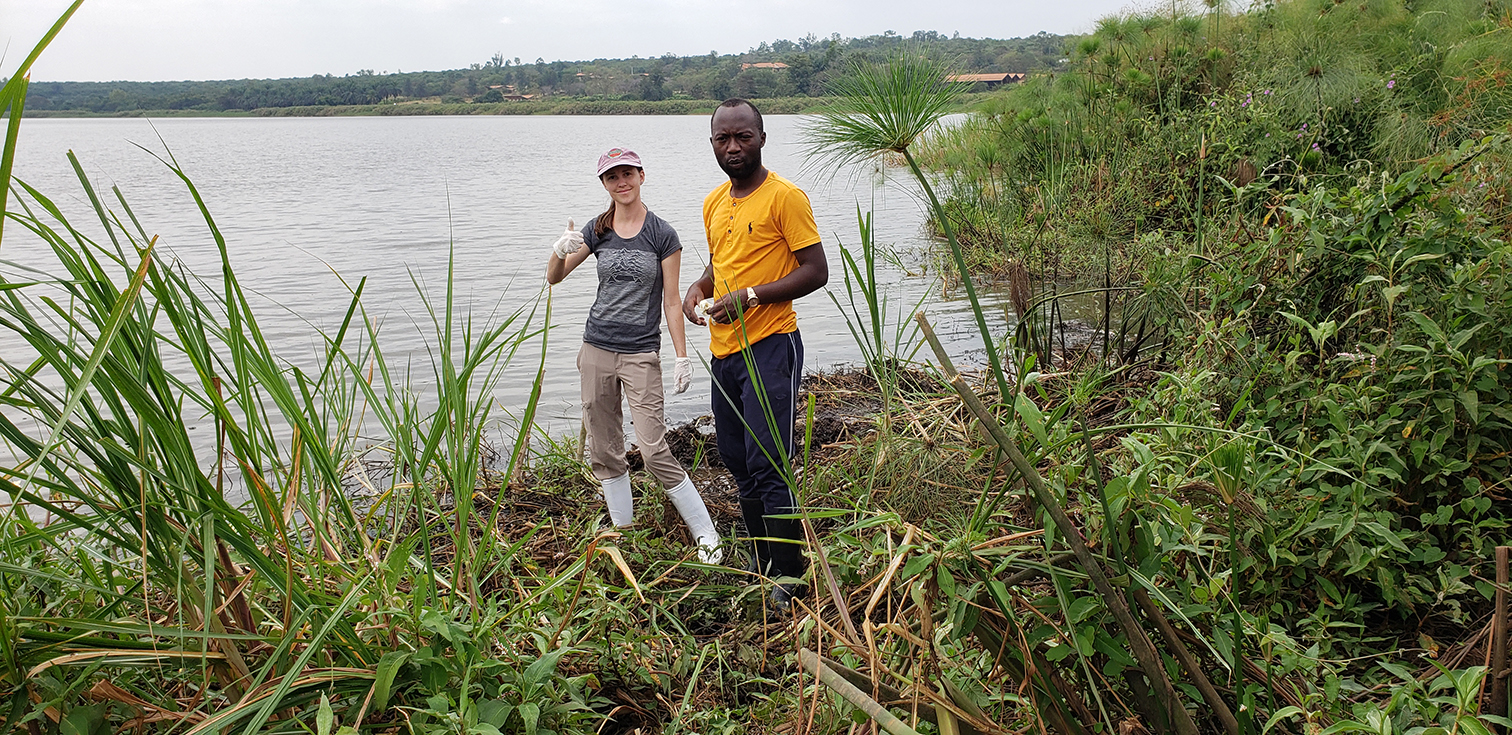Mollie Brown
This summer, I spent three weeks in Rwanda conducting a One Health environmental toxicology research project. For the project, I was accompanied by Dr. Rumbeiha, a veterinary toxicologist and professor at UC Davis, as well as our partners from the University of Rwanda’s veterinary school and the Rwanda Institute of Conservation Agriculture. Our project goal was to assess the environmental health of a vulnerable community in an area of intensive agriculture through sampling for pesticides, harmful algal bloom toxins, and other environmental contaminants.
To do this, we deployed passive adsorbent devices that collect toxicants over time into the river directly fed from the agricultural run-off and into the water bodies in the rice fields. We also took samples of drinking water, soil, sediment, earthworms, bees, and honey for analysis. To find the best sites for deployment and sampling, we had to survey the land, talk to many local people, and coordinate with the local chief. It was incredible to see how applicable One Health is–watching wildlife, livestock, and the community members drink, fish, and swim in the river directly fed from and accumulating agricultural run-off. And it was rewarding to know how important our research was there as it could make a difference in the lives of the people using the river.
I was also lucky enough to spend a few days shadowing in one of the only two small animal hospitals in the country, which allowed me to see how small animal medicine is practiced there and how it's developing. The time in the hospital after doing research was invaluable as I realized that my passion is truly treating and working with animals in the clinical setting. I was also able to closely watch surgeries, participate in my first dental procedure, and suture my first wound.
On the days we weren't working, I was able to see even more of the country, taking day trips to see African wildlife and the famed volcanoes and also to learn about the history of the country, including the devastating genocide. After the project was over, I decided to extend my time on the great continent of Africa and do some solo traveling in Uganda, Malawi, and South Africa which was an amazing adventure and a real perk of already being halfway across the world.


Partnering with University of Rwanda, I was paired with a Rwandan vet student on the project, which allowed me a cultural experience like no-other and a long-lasting friend. Working closely with people with a different skin color, different language, and very different background deepened my empathy and understanding of different cultures and people. It reminded me of my privilege as an American as I gained a nuanced view on how different cultures view the US. It also made me aware of what some people feel everyday as a minority, as I was working as the only white person, and in most instances, the only woman in my research group. This experience was truly unforgettable. It pushed me out of my comfort zone, taught me about my worldview, and built my confidence in navigating and conducting multilingual and multicultural research and veterinary medicine. I am so thankful to all of the people that made this project and incredible experience possible!

